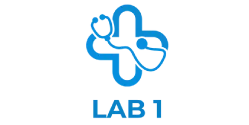Cancer Screening
While cancer screening has many benefits, it's not without limitations and risks. Some screening tests can lead to false positives, where a test suggests cancer is present when it's not. This can cause unnecessary anxiety and lead to further tests and procedures that may not be needed. On the other hand, false negatives can occur when a test fails to detect an existing cancer. There's also the risk of overdiagnosis, where a screening test identifies a cancer that would not have caused harm during the individual's lifetime, leading to potentially unnecessary treatment. Advancements in technology have significantly improved cancer screening processes. Innovations such as 3D mammography, liquid biopsies, and genetic screening have enhanced the accuracy and effectiveness of cancer detection. For example, 3D mammography, also known as tomosynthesis, provides a more detailed image of breast tissue, increasing the detection rate of early-stage breast cancer. Genetic screening allows individuals with a family history of certain cancers to understand their risk better and take preventive measures accordingly.
For more details please contact us at +919953312221
- Cancer Screening in Saket
- Cancer Screening in Chhatarpur
- Cancer Screening in Malviya Nagar
- Cancer Screening in Kishangarh
| Tags: |
